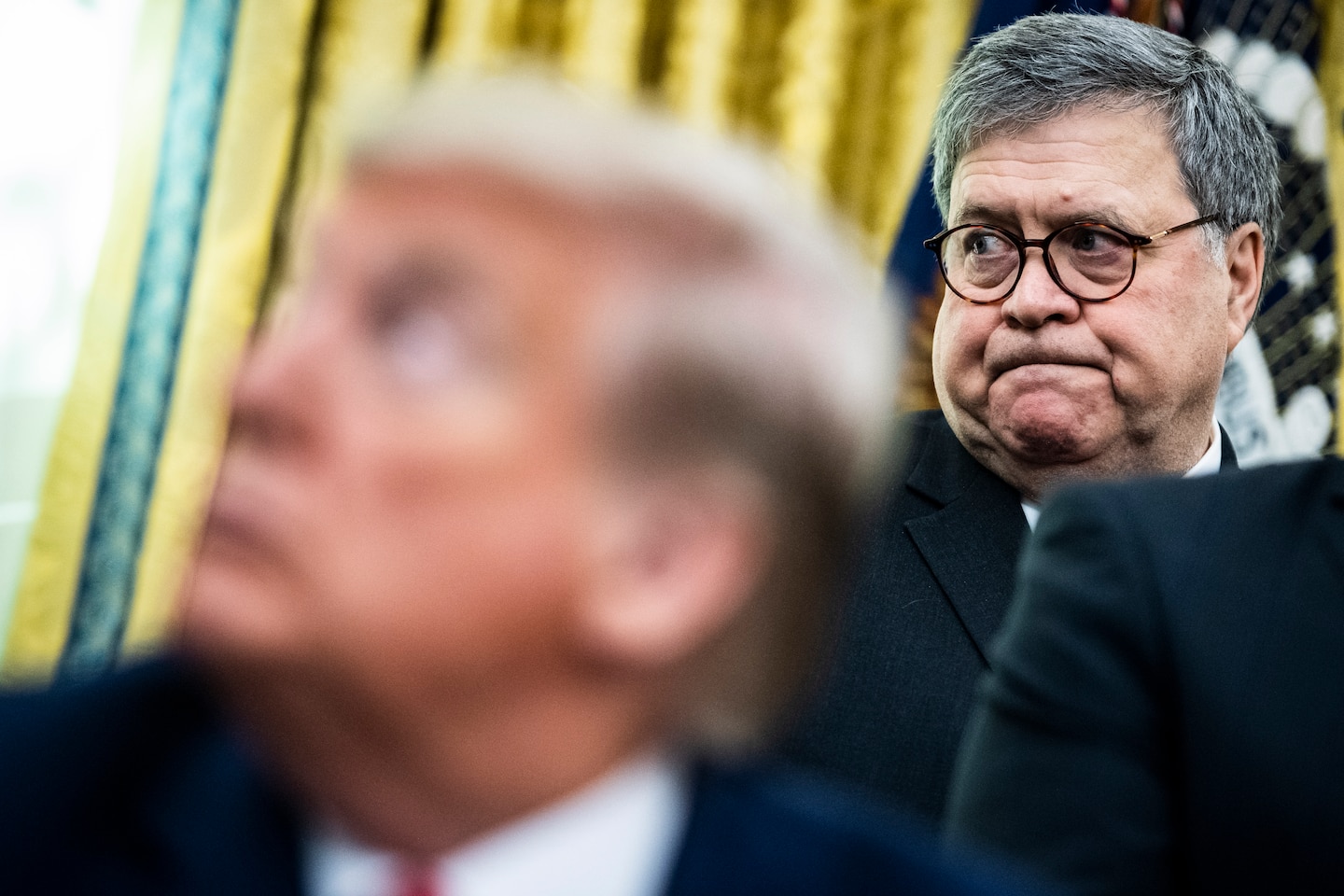How problematic is Trump’s Roger Stone commutation? Just ask William Barr.

Why exactly Barr counseled against this isn’t known, but there are two obvious options: He worried about the obviously problematic political appearance of a president commuting the sentence of a man who lied in ways that protected the president himself, and/or he worried about the legal implications of doing it.
It seems possible from Barr’s comments that it might be the latter.
During his confirmation hearing last year, Barr was asked whether it would be legal for Trump, who has often floated pardons for allies, to pardon someone in exchange for them pledging not to incriminate him. Barr said flatly that it would not be.
SEN. PATRICK LEAHY (D-Vt.): Do you believe a President could lawfully issue a pardon in exchange for the recipient’s promise to not incriminate him?
BARR: No. That would be a crime.
That exchange was tweeted by former federal prosecutor and former Washington Post columnist Harry Litman on Saturday, and it quickly went viral.
The first thing we should make clear is that, even by Barr’s standard, what we know about the Stone commutation wouldn’t make it illegal. First, Barr’s comments referred only to a pardon, not necessarily a commutation, which he could conceivably argue is different. And second — the more important point — we haven’t seen evidence of the kind of direct quid pro quo that Leahy described in his question.
What we have seen, though, is that Trump seemed to be well aware of and happy to promote the fact that his longtime political adviser hadn’t flipped on him as several others had.
“’I will never testify against Trump,’ ” Trump quoted Stone as saying in December 2018. “This statement was recently made by Roger Stone, essentially stating that he will not be forced by a rogue and out of control prosecutor to make up lies and stories about ‘President Trump.’ Nice to know that some people still have ‘guts!’ ”
Stone went on to repeatedly say that he wouldn’t “bear false witness” against Trump. Stone’s words seemed carefully calibrated — saying he wouldn’t lie rather than that he would never flip on anybody, period — but he was sending a consistent message both publicly and to Trump that he could be trusted not to flip.
Trump also, in August 2018, credited former campaign chairman Paul Manafort for not flipping in his case.
“One of the reasons I respect Paul Manafort so much is he went through that trial — you know, they make up stories, people make up stories,” Trump said. “This whole thing about flipping, they call it — I know all about flipping. For 30, 40 years, I’ve been watching flippers.”
These are two convicted allies for whom Trump has repeatedly floated pardons, and they also happen to be two men he’s praised for declining to flip on him. Based on Trump’s very public comments, it’s hardly illogical to think that such allies might believe that declining to go against him is a great way to win favor and perhaps benefit from a power that only a president has.
That doesn’t mean that there was such an explicit quid pro quo in the Stone case, though, and we have no reason to believe there was. But given Trump’s attitude toward potential obstruction of justice, it’s not as though he’s been terribly careful about these things. You have to wonder if his aides, including Barr, worried that Stone’s clemency might be at least interpreted as some kind of reward for not flipping.
Either way, though, Barr’s comments in the past week undermine Trump’s stated reason for the commutation. While Trump said he commuted Stone’s sentence because the prosecution was unjust, Barr repeatedly affirmed in his ABC News interview that the prosecution was indeed appropriate and that Stone deserved his jail time. Those comments are supremely unhelpful to Trump now — not even Barr agrees with him! — and it seems they were lodged either because Barr thought Stone was truly guilty or because he worried about what came next.
Barr is scheduled to testify later in the month before the House Judiciary Committee, where he’ll presumably be asked to elaborate on his rationale for opposing Trump on this. Given Barr’s own role in helping Stone, that he went against Trump here speaks volumes.






